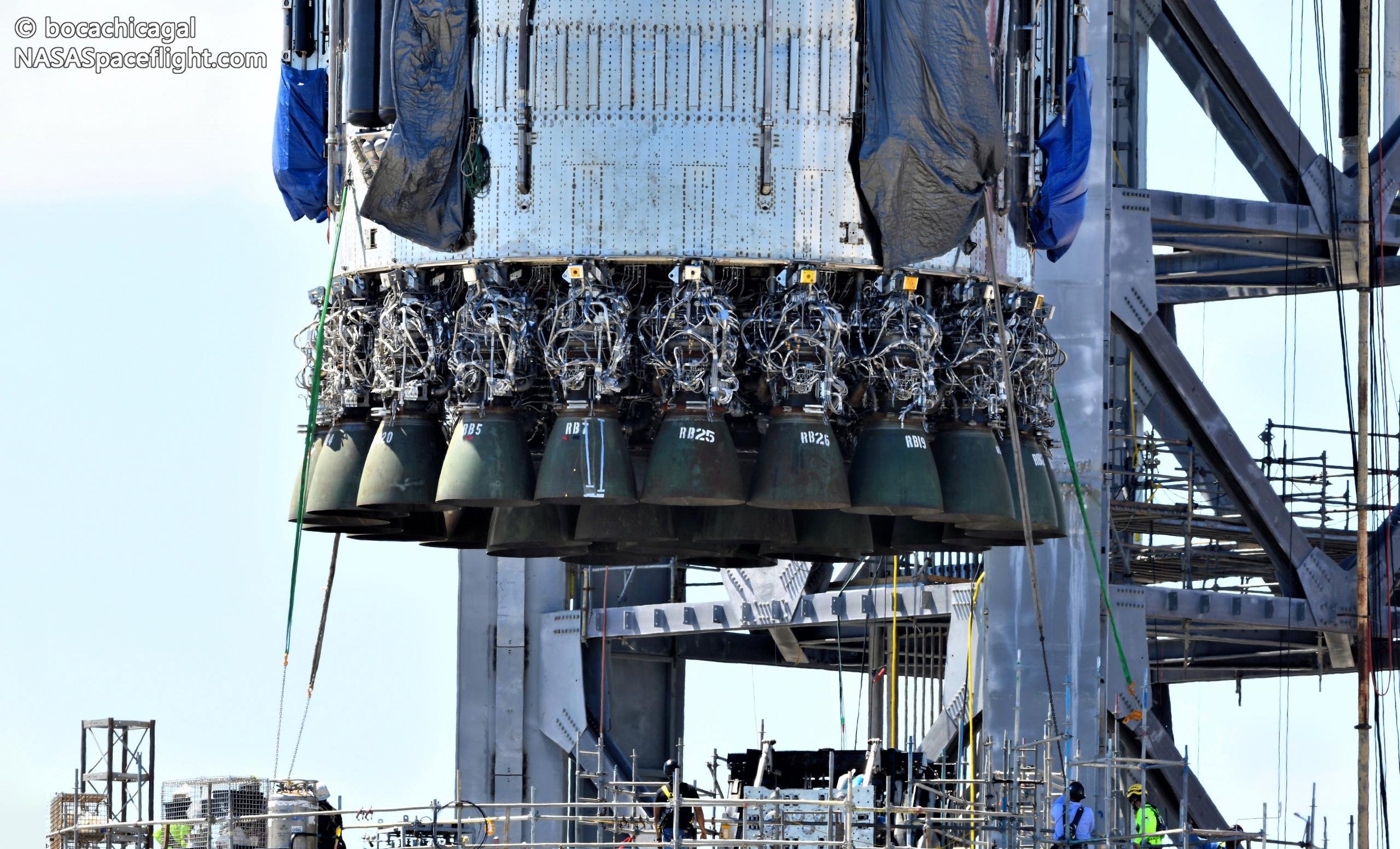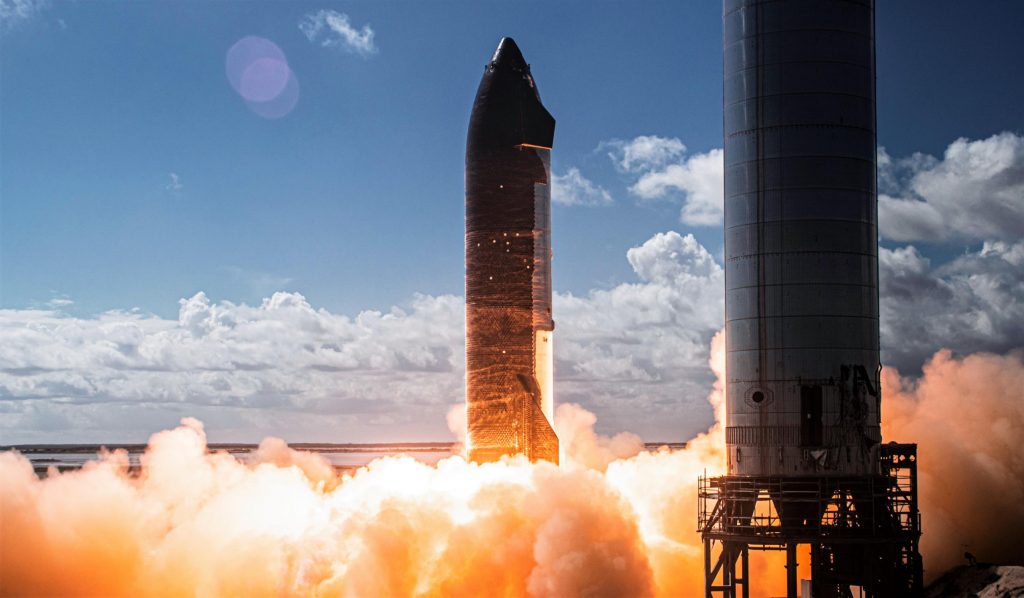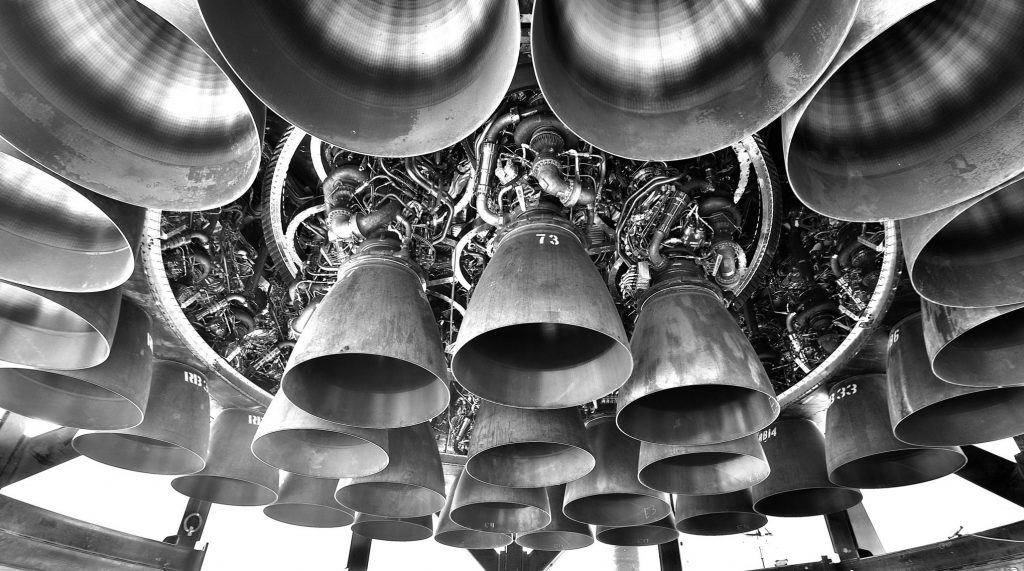

News
Elon Musk says SpaceX could soon face bankruptcy – here’s why that’s unlikely
In a new leaked email, SpaceX CEO Elon Musk says that the company could go bankrupt if, by the end of 2022, it can’t achieve Starship and Starlink milestones that are by all practical appearances out of reach.
The news – first broken by SpaceExplored – comes about a week after CNBC reported that Musk was “shaking up” SpaceX’s leadership by effectively firing its vice president of propulsion due to “a lack of progress” in the development of Starship’s Raptor engine. Now, apparently after taking his first good look ‘under the hood’ in a while, Musk says that “the Raptor production crisis is much worse than it seemed a few weeks ago.” Worse, the CEO has implied that if it “can’t get enough reliable Raptors made [by the end of 2022]…[SpaceX will] face a genuine risk of bankruptcy.”
The email raises both skepticism and several major questions.
First and foremost, can there be any truth to Musk’s claim that SpaceX could go bankrupt because of an unspecified “Raptor production crisis [and disaster]?” Put simply, not really. Musk’s argument is simple enough. According to his estimations, the first-generation (V1) Starlink satellite internet constellation is “financially weak by itself,” which has led SpaceX to develop a much larger, more advanced second-generation (V2) Starlink satellite and constellation that the company’s existing “Falcon [rockets have] neither the [payload] volume nor mass to orbit” to launch. To efficiently launch the Starlink V2 constellation, then, Musk says SpaceX needs Starship to be operational.
Up to that point, nothing in Musk’s email implies that a “Raptor production crisis” could pose any serious harm to SpaceX beyond annoying delays. More than two years ago, Musk believed that Raptor V1.0 already cost less than $1M to produce. As of 2021, SpaceX (again per Musk) is completing an average of one Raptor engine every two days and currently has 35 functional engines installed on Starship and Super Heavy booster prototypes in Boca Chica, Texas. Already, at a rate of one engine every 48 hours, SpaceX’s Raptor production capabilities are theoretically strong enough to fully outfit a significant Starship fleet.
Both stages of Starship are designed to be rapidly and fully reusable and absolutely need to be to efficiently and rapidly launch SpaceX’s Starlink V2 constellation. In theory, a production capacity of ~180 Raptors per year should allow SpaceX to outfit a fleet of three Super Heavies (99 engines) and 13 Starships (72 engines). Even if Super Heavy booster reuse is initially no faster than Falcon (~1 launch per month) and Starship reuse is no faster than Dragon (~3 launches per year), that fleet would be able to launch at least 36 times per years. Even if SpaceX’s former propulsion executives somehow pulled the wool over Musk’s eyes, tricking him into seeing engines that just weren’t there and hiding hundreds of millions of dollars in secret cost overruns from the company’s own accountants, an annual run rate of 100 Raptor engines at a cost of $5 million each would still be able to power a fleet of six reusable ships and two boosters capable of ~20 launches per year.


Musk says that SpaceX will only face the risk of bankruptcy if it “cannot achieve a Starship flight rate of at least once every two weeks next year” – equivalent to 26 launches annually. Again, being deceived for years would be a terrible look but nothing described above appears to have any chance of bankrupting SpaceX. However, the CEO also says that SpaceX “is spooling up” one or several factories to produce “several million” Starlink user terminals (dishes) per year in a process that “will consume massive capital [and assumes] that [Starlink V2 satellites] will be on orbit to handle the bandwidth demand.” He even goes as far as to say that those millions of terminals “will be useless otherwise.”
Once again, while what he describes is an undeniable hurdle for SpaceX, the company is making a choice to “consume massive capital” to “spool up” Starlink dish factories before the constellation capacity needed to take advantage of those dishes has been secured. SpaceX doesn’t need to make such a massive investment so quickly when it could instead split that money with Starship, ensure that Starship and Raptor and Starlink V2.0 satellites are ready or close to ready for routine launches, and then invest heavily in dish production.
For example, just this month, SpaceX raised almost $350M from investors that have a practically bottomless appetite for SpaceX investments. Combined, by the end of the year, SpaceX will have likely raised more than $2.3B in 2021 alone. Valued at more than $100 billion, the company could – as a last resort – feasibly raise double-digit billions in one fell swoop with an IPO. Put simply, the only way SpaceX could ever go bankrupt in the near term would be by consciously letting itself drown in a sea of life preservers.
This is not to say that SpaceX doesn’t have numerous massive challenges ahead of it, nor is it to say that its fundraising potential is truly limitless. Investors could eventually become disillusioned. It’s entirely possible that it will take SpaceX years longer than Musk expects to begin routine Starlink V2.0 launches with Starship. Environmental approvals alone could easily preclude more than five orbital Starship launches in 2022 and potentially prevent regular (i.e. biweekly) launches well into 2023. But the fact of the matter is that unless Elon Musk is telegraphing signs that the rest of the company’s finances are a house of cards, the odds of SpaceX actually going bankrupt anytime soon are vanishingly small. In reality, he’s likely just attempting to (for better or worse) instill some amount of fear and panic in SpaceX employees to encourage them to work more hours and take fewer days off.
Update: Musk has tweeted a brief public comment confirming that he believes bankruptcy is actually an unlikely – but not impossible – outcome for SpaceX.
If a severe global recession were to dry up capital availability / liquidity while SpaceX was losing billions on Starlink & Starship, then bankruptcy, while still unlikely, is not impossible.
GM & Chrysler went BK last recession.
“Only the paranoid survive.” – Grove— Elon Musk (@elonmusk) November 30, 2021
Elon Musk
Tesla Supercharger Diner food menu gets a sneak peek as construction closes out
What are you ordering at the Tesla Diner?

The Tesla Supercharger Diner in Los Angeles is nearing completion as construction appears to be winding down significantly. However, the more minor details, such as what the company will serve at its 50s-style diner for food, are starting to be revealed.
Tesla’s Supercharger Diner is set to open soon, seven years after CEO Elon Musk first drafted the idea in a post on X in 2018. Musk has largely come through on most of what he envisioned for the project: the diner, the massive movie screens, and the intended vibe are all present, thanks to the aerial and ground footage shared on social media.
We already know the Diner will be open 24/7, based on decals placed on the front door of the restaurant that were shared earlier this week. We assume that Tesla Optimus will come into play for these long and uninterrupted hours.
The Tesla Diner is basically finished—here’s what it looks like
As far as the food, Tesla does have an email also printed on the front door of the Diner, but we did not receive any response back (yet) about what cuisine it will be offering. We figured it would be nothing fancy and it would be typical diner staples: burgers, fries, wings, milkshakes, etc.
According to pictures taken by @Tesla_lighting_, which were shared by Not a Tesla App, the food will be just that: quick and affordable meals that diners do well. It’s nothing crazy, just typical staples you’d find at any diner, just with a Tesla twist:
Tesla Diner food:
• Burgers
• Fries
• Chicken Wings
• Hot Dogs
• Hand-spun milkshakes
• And more https://t.co/kzFf20YZQq pic.twitter.com/aRv02TzouY— Sawyer Merritt (@SawyerMerritt) July 17, 2025
As the food menu is finalized, we will be sure to share any details Tesla provides, including a full list of what will be served and its prices.
Additionally, the entire property appears to be nearing its final construction stages, and it seems it may even be nearing completion. The movie screens are already up and showing videos of things like SpaceX launches.
There are many cars already using the Superchargers at the restaurant, and employees inside the facility look to be putting the finishing touches on the interior.
🚨 Boots on the ground at the Tesla Diner:
— TESLARATI (@Teslarati) July 17, 2025
It’s almost reminiscent of a Tesla version of a Buc-ee’s, a southern staple convenience store that offers much more than a traditional gas station. Of course, Tesla’s version is futuristic and more catered to the company’s image, but the idea is the same.
It’s a one-stop shop for anything you’d need to recharge as a Tesla owner. Los Angeles building permits have not yet revealed the date for the restaurant’s initial operation, but Tesla may have its eye on a target date that will likely be announced during next week’s Earnings Call.
News
Tesla’s longer Model Y did not scale back requests for this vehicle type from fans
Tesla fans are happy with the new Model Y, but they’re still vocal about the need for something else.

Tesla launched a slightly longer version of the Model Y all-electric crossover in China, and with it being extremely likely that the vehicle will make its way to other markets, including the United States, fans are still looking for something more.
The new Model Y L in China boasts a slightly larger wheelbase than its original version, giving slightly more interior room with a sixth seat, thanks to a third row.
Tesla exec hints at useful and potentially killer Model Y L feature
Tesla has said throughout the past year that it would focus on developing its affordable, compact models, which were set to begin production in the first half of the year. The company has not indicated whether it met that timeline or not, but many are hoping to see unveilings of those designs potentially during the Q3 earnings call.
However, the modifications to the Model Y, which have not yet been officially announced for any markets outside of China, still don’t seem to be what owners and fans are looking forward to. Instead, they are hoping for something larger.
A few months ago, I reported on the overall consensus within the Tesla community that the company needs a full-size SUV, minivan, or even a cargo van that would be ideal for camping or business use.
Tesla is missing one type of vehicle in its lineup and fans want it fast
That mentality still seems very present amongst fans and owners, who state that a full-size SUV with enough seating for a larger family, more capability in terms of cargo space for camping or business operation, and something to compete with gas cars like the Chevrolet Tahoe, Ford Expedition, or electric ones like the Volkswagen ID.BUZZ.
We asked the question on X, and Tesla fans were nearly unanimously in support of a larger SUV or minivan-type vehicle for the company’s lineup:
🚨 More and more people are *still* saying that, despite this new, longer Model Y, Tesla still needs a true three-row SUV
Do you agree? https://t.co/QmbRDcCE08 pic.twitter.com/p6m5zB4sDZ
— TESLARATI (@Teslarati) July 16, 2025
Here’s what some of the respondents said:
100% agree, we need a larger vehicle.
Our model Y is quickly getting too small for our family of 5 as the kids grow. A slightly longer Y with an extra seat is nice but it’s not enough if you’re looking to take it on road trips/vacations/ kids sports gear etc.
Unfortunately we…
— Anthony Hunter (@_LiarsDice_) July 17, 2025
Had to buy a Kia Carnival Hybrid because Tesla doesn’t have a true 3 row vehicle with proper space and respectable range. pic.twitter.com/pzwFyHU8Gi
— Neil, like the astronaut (@Neileeyo) July 17, 2025
Agreed! I’m not sure who created this but I liked it enough to save it. pic.twitter.com/Sof5nMehjS
— 🦉Wise Words of Wisdom – Inspirational Quotes (IQ) (@WiseWordsIQ) July 16, 2025
Tesla is certainly aware that many of its owners would like the company to develop something larger that competes with the large SUVs on the market.
However, it has not stated that anything like that is in the current plans for future vehicles, as it has made a concerted effort to develop Robotaxi alongside the affordable, compact models that it claims are in development.
It has already unveiled the Robovan, a people-mover that can seat up to 20 passengers in a lounge-like interior.
The Robovan will be completely driverless, so it’s unlikely we will see it before the release of a fully autonomous Full Self-Driving suite from Tesla.
Energy
Tesla launches first Virtual Power Plant in UK – get paid to use solar
Tesla has launched its first-ever Virtual Power Plant program in the United Kingdom.

Tesla has launched its first-ever Virtual Power Plant program in the United Kingdom. This feature enables users of solar panels and energy storage systems to sell their excess energy back to the grid.
Tesla is utilizing Octopus Energy, a British renewable energy company that operates in multiple markets, including the UK, France, Germany, Italy, Spain, Australia, Japan, New Zealand, and the United States, as the provider for the VPP launch in the region.
The company states that those who enroll in the program can earn up to £300 per month.
Tesla has operated several VPP programs worldwide, most notably in California, Texas, Connecticut, and the U.S. territory of Puerto Rico. This is not the first time Tesla has operated a VPP outside the United States, as there are programs in Australia, Japan, and New Zealand.
This is its first in the UK:
Our first VPP in the UK
You can get paid to share your energy – store excess energy in your Powerwall & sell it back to the grid
You’re making £££ and the community is powered by clean energy
Win-win pic.twitter.com/evhMtJpgy1
— Tesla UK (@tesla_uk) July 17, 2025
Tesla is not the only company that is working with Octopus Energy in the UK for the VPP, as it joins SolarEdge, GivEnergy, and Enphase as other companies that utilize the Octopus platform for their project operations.
It has been six years since Tesla launched its first VPP, as it started its first in Australia back in 2019. In 2024, Tesla paid out over $10 million to those participating in the program.
Participating in the VPP program that Tesla offers not only provides enrolled individuals with the opportunity to earn money, but it also contributes to grid stabilization by supporting local energy grids.
-

 Elon Musk1 day ago
Elon Musk1 day agoWaymo responds to Tesla’s Robotaxi expansion in Austin with bold statement
-

 News1 day ago
News1 day agoTesla exec hints at useful and potentially killer Model Y L feature
-

 Elon Musk2 days ago
Elon Musk2 days agoElon Musk reveals SpaceX’s target for Starship’s 10th launch
-

 Elon Musk3 days ago
Elon Musk3 days agoTesla ups Robotaxi fare price to another comical figure with service area expansion
-

 News1 day ago
News1 day agoTesla’s longer Model Y did not scale back requests for this vehicle type from fans
-

 News1 day ago
News1 day ago“Worthy of respect:” Six-seat Model Y L acknowledged by Tesla China’s biggest rivals
-

 News2 days ago
News2 days agoFirst glimpse of Tesla Model Y with six seats and extended wheelbase
-

 Elon Musk2 days ago
Elon Musk2 days agoElon Musk confirms Tesla is already rolling out a new feature for in-car Grok











